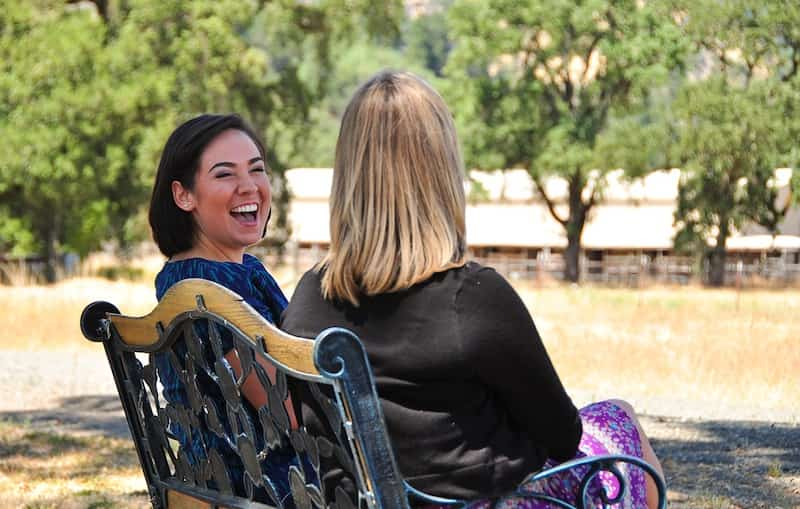With over 38,000 guests treated and a completion rate over 90%, Duffy’s Napa Valley Rehab outperforms other residential stimulant addiction treatment centers by building the necessary foundation for long-term recovery through expert 12-Step treatment for stimulant addiction in Northern California.
Learn More About Stimulant Addiction Treatment
Learn More About Stimulant Addiction Treatment at Duffy’s Napa Valley Rehab in Northern California
As their name suggests, stimulants stimulate, or increase, the activity of the central nervous system, which includes the spinal cord and the brain. Stimulants come in many forms. Legal stimulants such as Ritalin and Adderall allow individuals with ADHD to achieve to their highest potential, and it is hard to walk more than a few city blocks without running into a store or café that sells beverages with one of the most common stimulants available: caffeine. Although legal stimulants are generally harmless or even beneficial when used appropriately, illegal stimulants such as methamphetamine, or meth, can wreak havoc in individuals’ lives. Even legal prescription stimulants, such as Ritalin and Adderall, can cause immense harm if they are abused.
Stimulant use disorder, the clinical term for stimulant addiction, is a serious and life-threatening condition, but at Duffy’s Napa Valley Rehab, we have decades of experience helping individuals overcome addictions to these powerful drugs. With the help of our caring, experienced staff in our compassionate treatment programs, individuals who are struggling with an addiction to stimulants can find the help they need to live the recovered lives they deserve.
How to Help a Loved One
Helping a Loved One get Treatment for Stimulant Addiction
There are many different ways that an individual can find him or herself addicted to stimulants, but watching a loved one go through this process and feeling powerless to do anything to help can be an incredibly difficult and painful experience. Fortunately, there are a number of ways you can help:
- Learn about treatment options for your loved one’s drug of choice. Many people have successfully overcome addictions to stimulant drugs, and your loved one can do the same. Look into treatment centers that provide care for people with stimulant use disorders, and find a few that may be a good fit for your loved one.
- Research your loved one’s stimulant of choice. An addiction to meth can look very different from an addiction to prescription stimulants, so learn to recognize the signs and symptoms of stimulant abuse and learn how to recognize the warning signs of intoxication and overdose on these substances.
- Gather the support of close friends and family members. Helping a loved one overcome stimulant use disorder is a difficult process, and you will need all the help and emotional support you can get.
- Talk openly with your loved one, share your observations, and express your concerns. These conversations maybe difficult, and your loved one may be defensive, but it is important that he or she knows that you are aware of his or her problem and that you want to help. You cannot force your loved one into a rehab center, but you can lovingly encourage him or her to get the help he or she needs.
- When your loved one decides to seek care, help him or her with logistical issues that may arise. Issues such as working out insurance information, managing appointments with treatment center staff members, and handling the numerous issues that arise during a transition into residential care can all sap the motivation of an individual who is wanting to seek treatment, so help with as many of these issues as you can.
- Take care of yourself. Eat healthy, get exercise, and get enough sleep. Lean on the support of trusted friends and family.
Why Consider Treatment
Why Consider Treatment for Stimulant Addiction at Duffy’s Napa Valley Rehab in Northern California
If left untreated, there are few areas of an individual’s life that stimulant use disorder cannot affect. Friendships and romantic relationships are likely to suffer, perhaps leading to complete social isolation. In addition, it is extremely difficult to maintain a job while struggling with a stimulant use disorder, so negative outcomes such as demotion, job loss, and long-term unemployment are possible, if not likely. Furthermore, stimulants can cause cognitive impairment, organ damage, and even lead to a fatal overdose. Individuals who abuse stimulants may experience injury as a result of accidents or drug-related violence and may be at increased risk of contracting sexually transmitted infections such as HIV and hepatitis C as result of sharing used needles. Fortunately, the best way to avoid these negative outcomes is to find effective treatment that can help individuals overcome stimulant use disorder.
Types of Treatment
Types of Stimulant Addiction Treatment Offered at Duffy’s Napa Valley Rehab in Northern California
Situated on 23 acres of tranquil, picturesque land in Northern California, Duffy’s Napa Valley Rehab is a pioneering provider of top notch addiction treatment for men and women aged 18 and older who wish to reclaim their lives from substance abuse and chemical dependency. With a mission to break through the ties that can bind a person to a substance or substances, we offer invaluable education, compassion, and the skills needed achieve and maintain sobriety. Duffy’s is truly where the destructive path of addiction can come to an end.
Grounded in the 12-Step principles of Alcoholics Anonymous, the treatment offered at this center makes for a transformative experience that can improve upon the lives of all who come for care. Trained, experienced, and dedicated staff members, many of whom have worked at our center for several years, go above and beyond to ensure that guests’ recovery journeys are both life-changing and meaningful. Upon completion of our streamlined admissions process, individualized treatment plans are created by these staff members so as to address and treat the concerns our guests come to us with. Within these plans, the following proven-effective and evidenced-based methods of care may be included as part of a man or woman’s experience at Duffy’s:
Medication management: If a guest is requiring medication in order to manage the symptoms of a mental health condition while working on recovering from an addiction to stimulants, we, at Duffy’s, are pleased to be able to facilitate meetings with a psychiatrist on an as-needed basis. Our staff assists guests in providing them access to their medications, and the dosages administered are monitored closely so as to ensure the safety of all guests who require pharmaceutical interventions while in our care.
Individual therapy: Each man and woman who chooses to recover at our treatment center is assigned a primary care counselor for the duration of his or her treatment. These staff members facilitate individual therapy sessions two times each week so that guests are able to process their feelings, emotions, and experiences in a private setting with a qualified professional. We believe that it is beneficial for those who are grappling with an addiction to stimulants to take part in individual therapy, as this method of care allows them to openly discuss their experiences in a setting that is extremely conducive to both healing and recovering.
Group therapy: So as to provide guests with optimal support, Duffy’s rehab treatment center is proud to offer several group therapy opportunities to guests who are battling addictions to stimulants and other substances. Peer-led group therapy sessions occur four days per week and are driven by the topics that are personal and relevant to our guests’ recovery journeys. Additionally, our staff conducts group therapy sessions once per day, which include a check-in and cover the following addiction- and recovery-related topics:
- Mindfulness
- Responsibility
- Self-awareness
- Relapse prevention
- Acceptance
- Powerless and unmanageability
Experiential therapy: Typically occurring during staff-led group therapy sessions, Duffy’s supplies various experiential therapy sessions during a guest’s time with us. These sessions enable men and women to reconnect with themselves, and allow them to experience healing on a profoundly deeper level. The following experiential therapies are those that a guest can participate in while working to overcome an addiction to stimulants:
- Trust-building exercises, including surrender falls
- Emotional Freedom Technique (EFT)
- Meditation
- Art therapy
- Trust the Process
- Music and recovery
- Crossing the Line
Family therapy: Because Duffy’s is committed to helping both guests and their loved ones in Northern California when a stimulant addiction is affecting their lives, the programming we offer includes family therapy sessions. Occurring weekly, these sessions help those we treat and those closest to them heal from the pain addiction has caused and become a united front against further substance abuse. Additionally, we also offer educational groups on the weekends that are led by our staff and provide guests’ loved ones with the information and support they require at this stage in their love one’s recovery. Lastly, we afford each guest with the opportunity to request a private family session with his or her primary care counselor near the end of his or her time with us so as to prepare for what lies ahead after leaving Duffy’s.
Depending on the guest’s needs, we can customize a plan of treatment that befits what the individual is needing during his or her recovery journey. We work side-by-side with the men and women who come to Duffy’s, and we will do all that we can to ensure that each person entrusted into our care is receiving only the most appropriate methods of treatment. Because of this, the inclusion and frequency of the above interventions within a guest’s stimulant addiction treatment plan will rely on where the individual is at in his or her recovery.
Nearing the end of a guest’s time at our stimulant addiction treatment center, our staff will collaborate with each person to determine the most appropriate follow-up services that will allow him or her to remain on the path of recovery for the long-term. Additionally, for those who receive stimulant rehab at Duffy’s for a minimum of 21 days, three months of continuing care services will be offered, which include therapy sessions with addiction specialists, drug screenings, and 12-Step process groups via Full Circle Recovery. We supply this offering as a means of upholding our commitment to helping those we treat achieve both their treatment goals and the sober lives that they are capable of living.
In choosing Duffy’s, you or your loved one will become part of our Northern California family. Regardless if you complete our Relapse Restart, Foundational, or Extensive Relapse Prevention Program, you or someone you care about will be treated with the dignity and respect that is deserving of all people, and will receive the care needed to win the war against an addiction to stimulants. We ask that you do not let yet another day go by under the control of stimulants and, instead, call us today. We are here to help you or an important person in your life achieve to the highest potential.






















